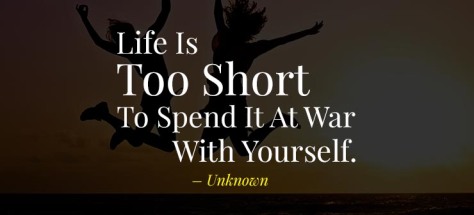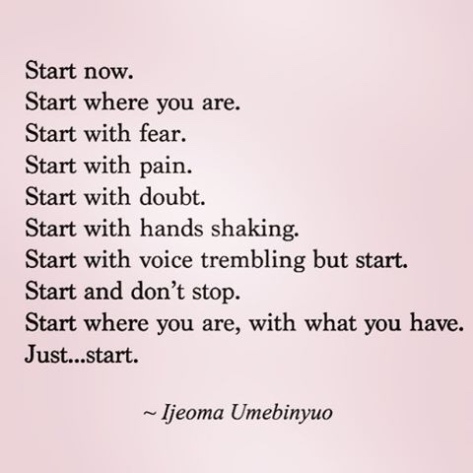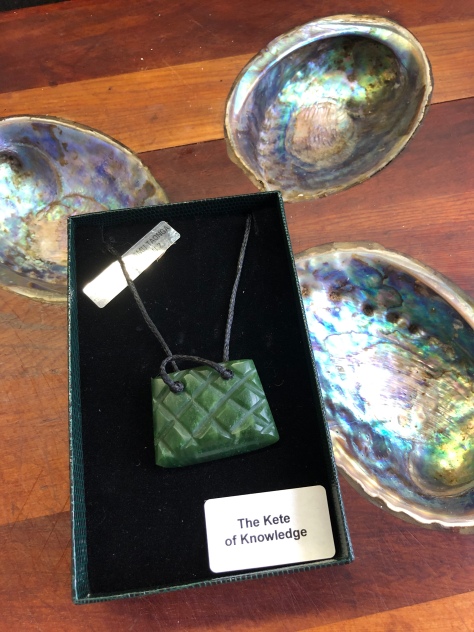
There is a new hatching of Churchill Fellows for 2019. Some of them will already be out of the starting blocks. They will be all around the globe connecting and sharing, learning and reflecting. Having amazing adventures.
Some of them though will still be planning and getting a bit panicky. They will read that their fellow Fellows are blogging or tweeting. That’s when they might start to wonder “What have I gotten myself into? or “Can I really do this?” or “Am I good enough/smart enough/ brave enough?” or that old chestnut “How will I find the time?”
So 2019 Fellows, please listen when I say that you are good enough, you are strong enough and you are smart enough. You can do this and the WCMT team and the Churchill Fellows alumni have got your backs. Don’t waste another second worrying about the small stuff. Go and be the extraordinary humans you have already proved yourselves to be by coming up with a great idea that has the potential to improve peoples lives somewhere and actually doing something about it. That is amazing.
As a 2018 Fellow, I had all those thoughts and feelings at some point or another over the last year or so. And now I am having them again as I struggle to get my report written.
I have absolute confidence that the learning from my Fellowship is having an impact on me and those around me in my community in a positive way, pretty much every day. Absolutely no question about that.
I am however struggling to find my voice for my report. I’m using this blog to try and give myself a kick start. The problem, other than that I am a champion procrastinator, is that I don’t want to miss the opportunity to make a difference. And there it is. I am back to “…but what if it’s not good enough?”
I was checking out the Twitter feed of someone I connected with during my trip to New Zealand . I suggested quite vociferously that she needed to go to the SCF Nuka Conference this year and I was really delighted to see a photograph of her in the front row! I also saw a tweet about Derek Feeleys’s plenary session. http://www.ihi.org
Derek closed his presentation with a piece of poetry by Ijeoma Umebinyuo. I hadn’t heard of Ijeoma. I urge you to check out her book of poetry “Questions for Ada” and her TEDx talk on Dismantling the Culture of Silence.
Ijeoma Umebinyuo tackles the Culture of Silence in this thought provoking and articulate TEDx talk which explores how remaining silent trivalizes people’s struggles whether it be with mental health, sexual harrassment, or another topic deemed taboo by the society in which we live. She divides the Culture of Silence into the three C’s: culture, code, and cage. Iljeoma suggests we escape by taking ownership of our stories and our struggles and by encouraging others to do the same.
One of the themes of my report is the need to own and share our stories, to know and make peace with ourselves in order to be open to connection with others in the community we live and work in, in a way that is person-centred. This is not easy for many reasons some of which Iljeoma talks about in her TEDx.
I was reminded last week that our capacity as humans to make decisions depends on many factors such as social class, education, religion, gender, ethnicity, subculture, etc that can limit or influence the opportunities that individuals have and the decisions that they can make. It’s too simplistic to say that people should take greater responsibility for their own health and wellbeing. Life matters but not everyone has a happy life with meaning, purpose, direction and joy. Collective action will be required by our communities with individual responsibility sitting alongside social responsibility and the right social actions and social policies to support individual healthcare that helps people own their stories and find the life that matters to them.
I end my reflection with advice from Iljeoma and hope that I can make peace with myself, remember that I am enough, that I have a story to share and that I can get my report submitted.




